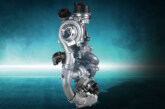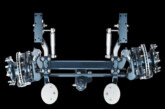The evolution of engine oil technology
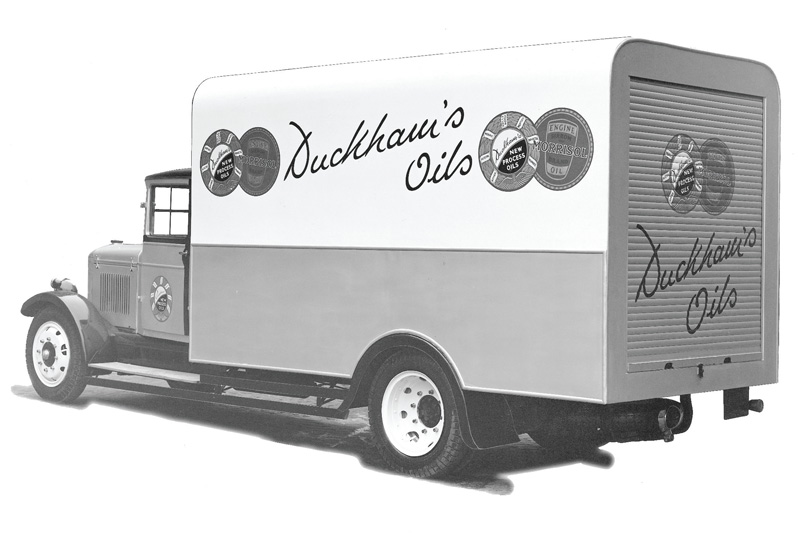
Mike Bewsey, global CEO of the original British motor oil, Duckhams, reports on how engine oil technology has changed since the company was first founded in 1899.
The past few decades have seen immense change in lubricants, driven by increasingly sophisticated engine technology. But cast your mind even further back to 1899, when the international combustion engine and motorised transport, whether by land, sea or air, was only just beginning. Entrepreneurial chemist Alexander Duckham began a legacy of innovation that has transformed oils and lubricants, alongside the accelerated development of transport, to where we are today.
Our roads look different to how they did back then. However, the importance of engine oil, particularly in commercial vehicles, has remained largely unchanged.
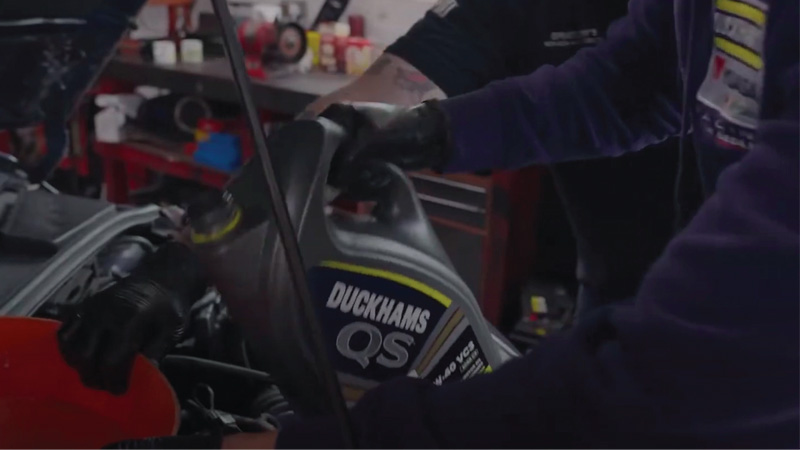
An article in June 1933, found in the Duckhams archives, states: “The man in the street and, it may be said, some operators of commercial fleets, cherish the misguided opinion that commercial vehicles do not require the best in motor fuel or the best in oil because – well, they are only commercial vehicles. The older they become, the more confirmed the opinion, hence they reach the scrap heap years before they need do… quality lubrication is certainly vital to long life. Nothing but the best lubricant is good enough.”
Today’s advanced, sophisticated lubricants deliver increasing benefits, helping OEMs deliver lower emissions and higher fuel economy, vital metrics for fleet operators. Workshops are getting increasingly used to dealing with fully synthetic oils with lower viscosities. EV fluids are also being developed to cater to the specific needs of fully electric buses, waste collection vehicles, vans and HGVs.
But for workshops, the age of the internal combustion engine isn’t over. ICE vehicles are likely to be around for many years to come.
Diesel dominates
According to the latest ACEA Vehicles in Use 2023 report, vans are now, on average, 12 years old, trucks 14.2 years and buses 12.7 years, a marked rise since 2018, when vans were, on average, 10.5 years old, and trucks and buses 11.7 years old.
Whilst alternatively powered vehicles are increasing their share of new vehicles, diesel still dominates new commercial vehicle registrations. In January 2024, ACEA data reported that 89% of new van registrations in the UK were diesel, 95% of new truck registrations were diesel, and 76% of new bus registrations were diesel. These vehicles will still be on the roads and in workshops by 2035 and beyond.
Hydrogen-fuelled vehicles may also be gaining traction as a viable alternative. JCB has already retrofitted a Mercedes-Benz Sprinter van and a 7.5-tonne Mercedes-Benz truck with its hydrogen-powered internal combustion engine, the same as those already powering prototype JCB construction and agricultural machines. The tests demonstrated how simple converting commercial vehicles to hydrogen could be.
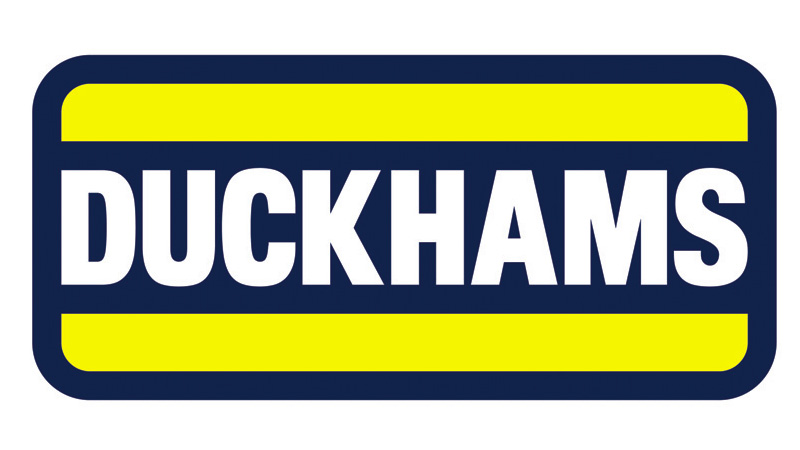
Oils for our time
Catering to the diverse and ageing vehicles on our roads, Duckhams offers high-performance engine oils formulated to keep engines of all ages moving.
For commercial vehicles, Duckhams Diesel Gard is a range of top-tier, multigrade diesel engine oils for heavy-duty using modern additive technology and high-quality virgin base oils, providing advanced protection for all vehicles operating under severe conditions. Diesel Gard Pro uses cutting-edge additive technology and high-quality synthetic base oils to provide outstanding protection for all heavy-duty vehicles operating under severe conditions. Duckhams Fleetmaster multigrade diesel engine oils for heavy-duty diesel engines meet current specifications and provide complete protection for all new and old generation vehicles.
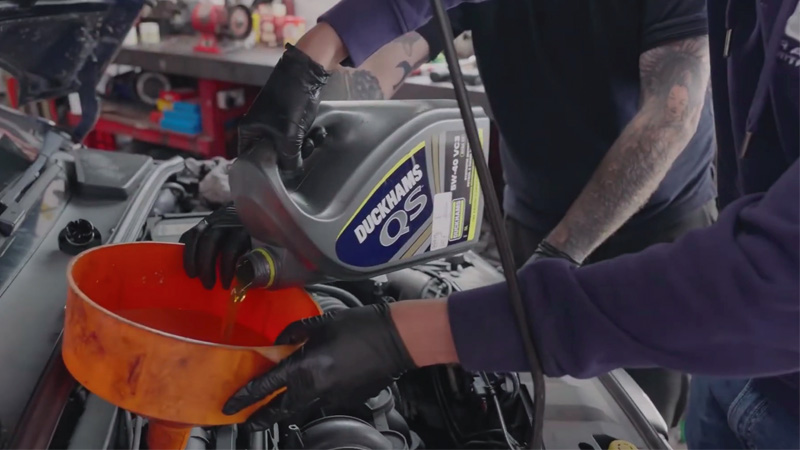
The essence of engine oil throughout the 20th century
Over 100 years ago, Duckhams developed revolutionary new process oils that controlled the build-up of carbon deposits. In 1933, Duckhams introduced the industry’s first Synchromesh Gearbox oil, and in 1951, Duckhams launched the first multi-grade oil—the iconic green Q – 20W-50, which transformed lubrication technology.
In 1909, pioneer Alexander Duckham achieved the first powered cross-Channel flight alongside Louis Blériot and in 1949, Duckhams powered Goldie Gardner’s MG to break the world land speed record, a track record of winning on land and in the sky. From conquering the British Motorcycle Championship in 1955 to recent triumphs at the OR BRIC Superbikes Championship in Thailand and the Porsche Carrera Cup GB in 2023, Duckhams continues to back winners in motorsport.
In 2024, we’re celebrating our illustrious history, and our commitment to advancing this legacy of innovation remains unwavering. Since the brand’s successful relaunch in 2018, Duckhams has received strong support from distributors and partners across the UK and developed its global network, with products now available in twenty-seven countries across Europe, the Middle East and Asia.
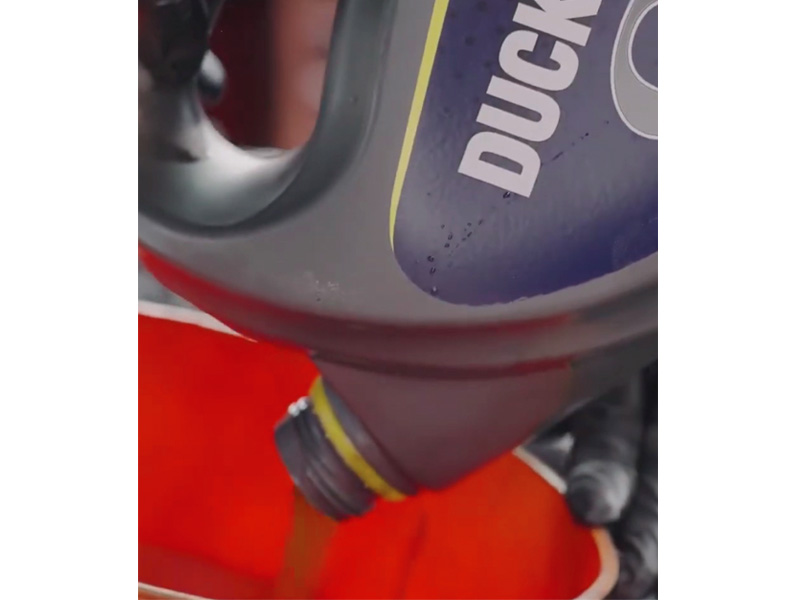
Innovation
We have always blended innovation with quality to create products that make movement frictionless. We will continue to innovate and support mechanics and motorists, whatever the future vehicle parc requirement, be that petrol, diesel, hybrid, electric or hydrogen-powered vehicles, for the next 125 years.
Any workshop unsure of what engine oil to use can always use our convenient online look-up tool at https://www.duckhams.com/uk/find-myoil/? country=GBR. Simply type in the registration and find the perfect blend for each vehicle.


